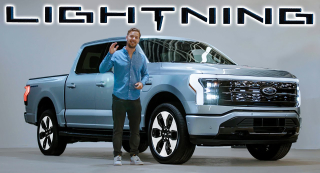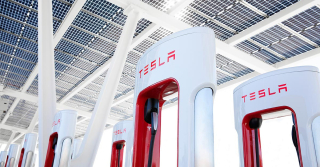
Tesla made it seem easy, by focusing on the high end of the market, by scaling production using government money, and by building its own battery plants.
But it’s not that easy, even for Tesla. Lithium Ion batteries are unstable. Their energy density is a fraction of gasoline’s.
This requires trade-offs among cost, weight, and range, trade-offs American companies (drunk on the profits from ginormous pick-ups) are unwilling to make. Ford’s F-150 Lightning isn’t selling. Rivian is also in trouble. With the top end of the market saturated, there’s nowhere to go.

EVs, it turns out, need good truck stops and stores like Buc-ees more than gas-powered cars do. A concierge service should manage the fill-up, park the car safely, and alert the driver that he’s ready to go. It means a lot of space, and some trustworthy people, to make the thing seamless. No one is doing that.

The response of some analysts is to say we shouldn’t do EVs at all, just burn the damn planet down already. Put up a wall against the Chinese and run on oil. They point to EV fires, to Tesla’s self-driving problems (a product of over-promising for rich consumers), and to Detroit’s short-term failures.
But I’ve been warning about this shit for years. If you want a mass market, you don’t just serve the class market. Don’t just build Cadillacs, build Chevys. In the end that’s where the profits are. In fact, build Model Ts, cars that can be upgraded later with better batteries and electronics as they’re perfected. For those of a certain age, we need a new IBM PC. For those even older, an S-100 bus.
That requires standards. It requires a push from government built on more than tax breaks, but support for coordination among competitors, and an open source approach. We’re stuck offering the wrong product at the wrong price with little after-market support. We’re getting killed.
There’s a huge opportunity here. Will anyone but the Chinese take it?









